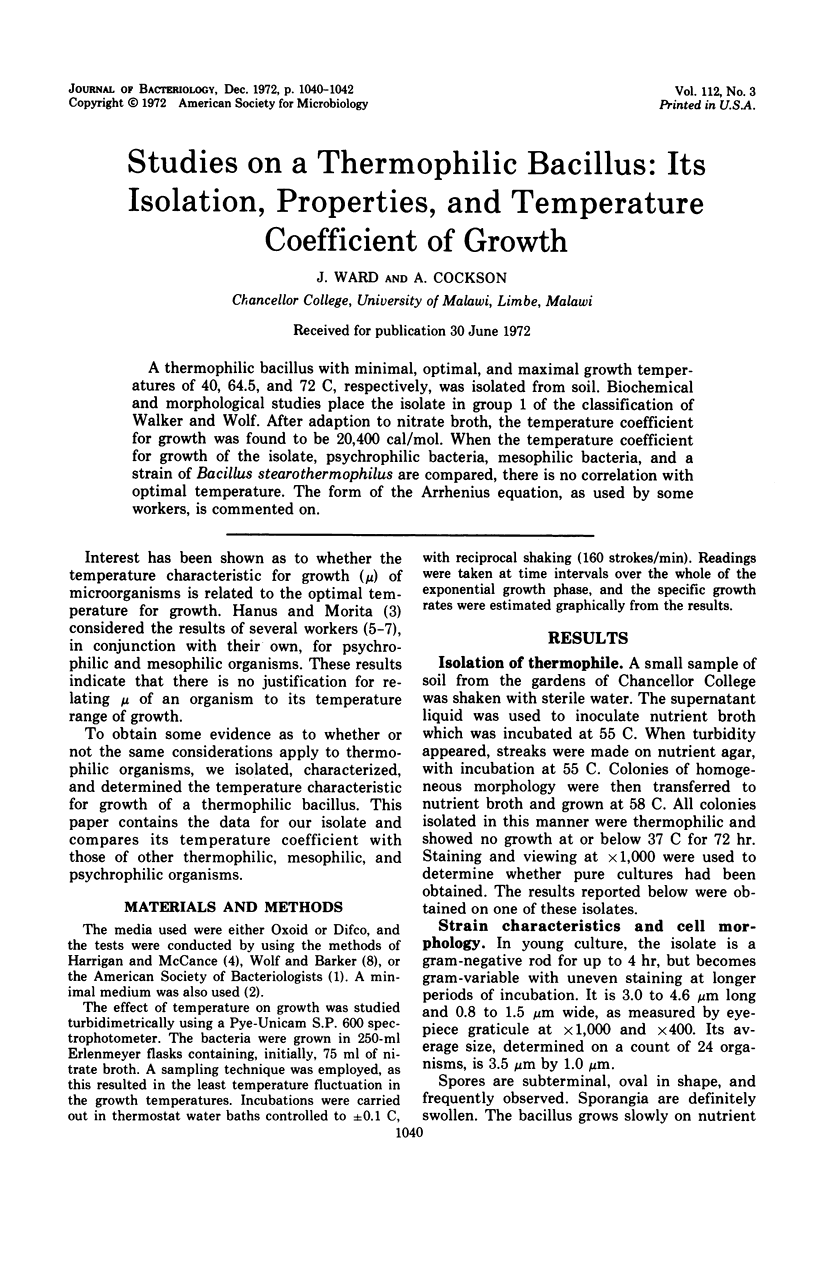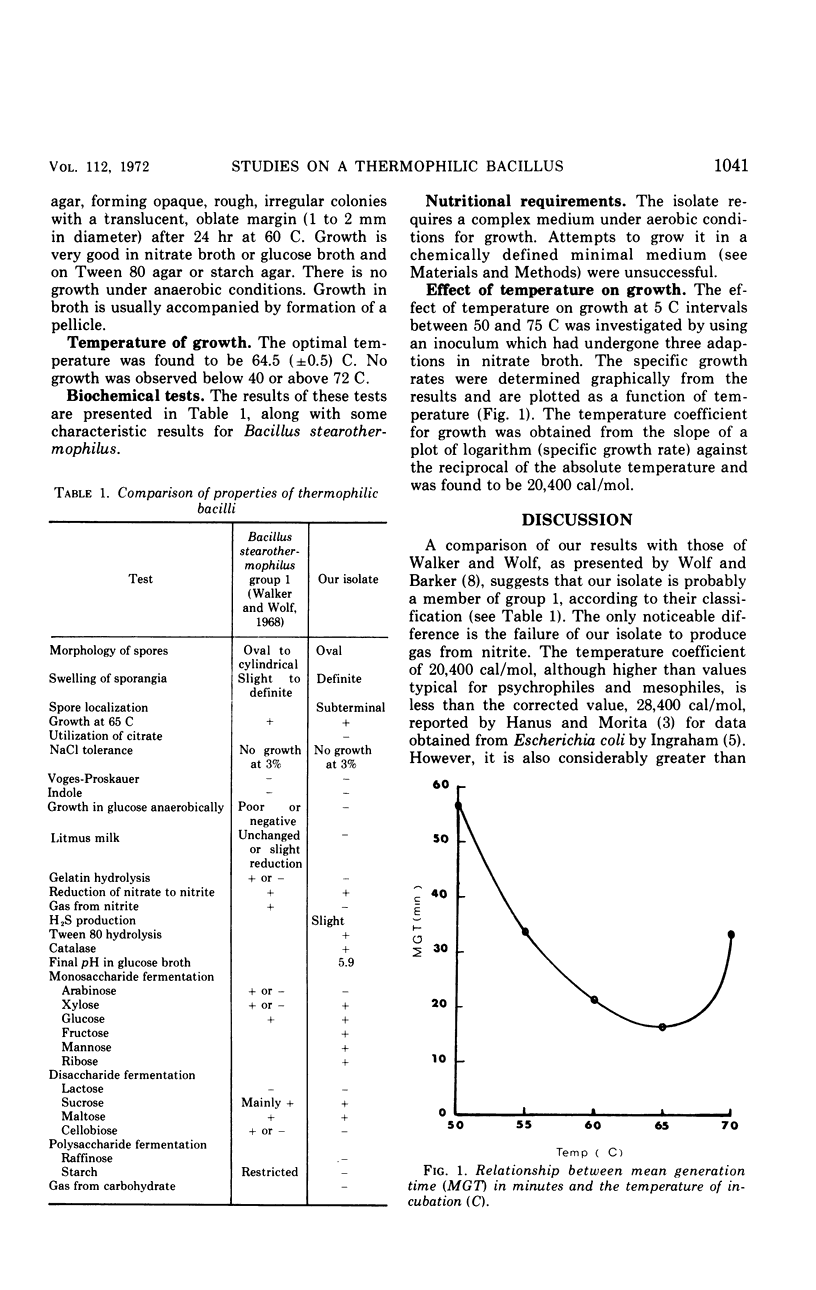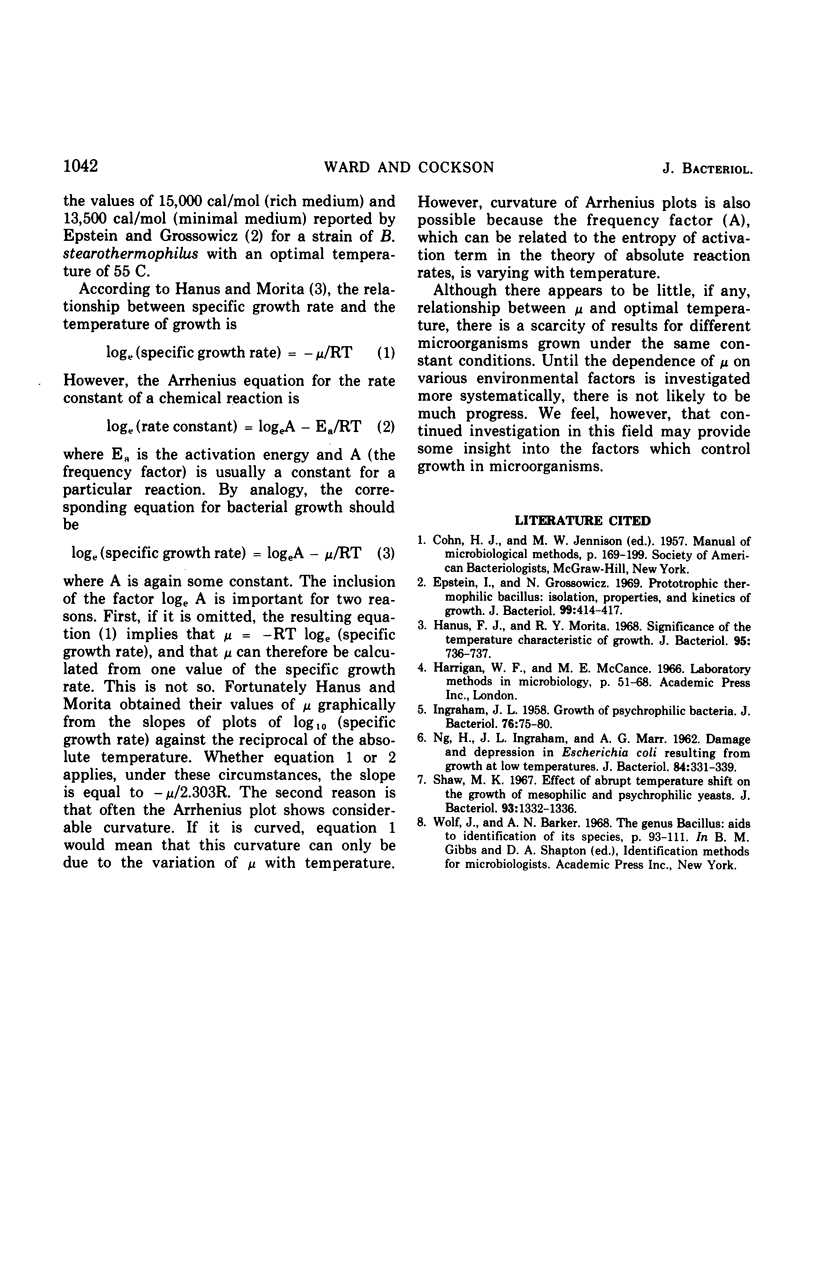Abstract
A thermophilic bacillus with minimal, optimal, and maximal growth temperatures of 40, 64.5, and 72 C, respectively, was isolated from soil. Biochemical and morphological studies place the isolate in group 1 of the classification of Walker and Wolf. After adaption to nitrate broth, the temperature coefficient for growth was found to be 20,400 cal/mol. When the temperature coefficient for growth of the isolate, psychrophilic bacteria, mesophilic bacteria, and a strain of Bacillus stearothermophilus are compared, there is no correlation with optimal temperature. The form of the Arrhenius equation, as used by some workers, is commented on.
Full text
PDF


Selected References
These references are in PubMed. This may not be the complete list of references from this article.
- Epstein I., Grossowicz N. Prototrophic thermophilic bacillus: isolation, properties, and kinetics of growth. J Bacteriol. 1969 Aug;99(2):414–417. doi: 10.1128/jb.99.2.414-417.1969. [DOI] [PMC free article] [PubMed] [Google Scholar]
- Hanus F. J., Morita R. Y. Significance of the temperature characteristic of growth. J Bacteriol. 1968 Feb;95(2):736–737. doi: 10.1128/jb.95.2.736-737.1968. [DOI] [PMC free article] [PubMed] [Google Scholar]
- INGRAHAM J. L. Growth of psychrophilic bacteria. J Bacteriol. 1958 Jul;76(1):75–80. doi: 10.1128/jb.76.1.75-80.1958. [DOI] [PMC free article] [PubMed] [Google Scholar]
- NG H., INGRAHAM J. L., MARR A. G. Damage and derepression in Escherichia coli resulting from growth at low temperatures. J Bacteriol. 1962 Aug;84:331–339. doi: 10.1128/jb.84.2.331-339.1962. [DOI] [PMC free article] [PubMed] [Google Scholar]
- Shaw M. K. Effect of abrupt temperature shift on the growth of mesophilic and psychrophilic yeasts. J Bacteriol. 1967 Apr;93(4):1332–1336. doi: 10.1128/jb.93.4.1332-1336.1967. [DOI] [PMC free article] [PubMed] [Google Scholar]


